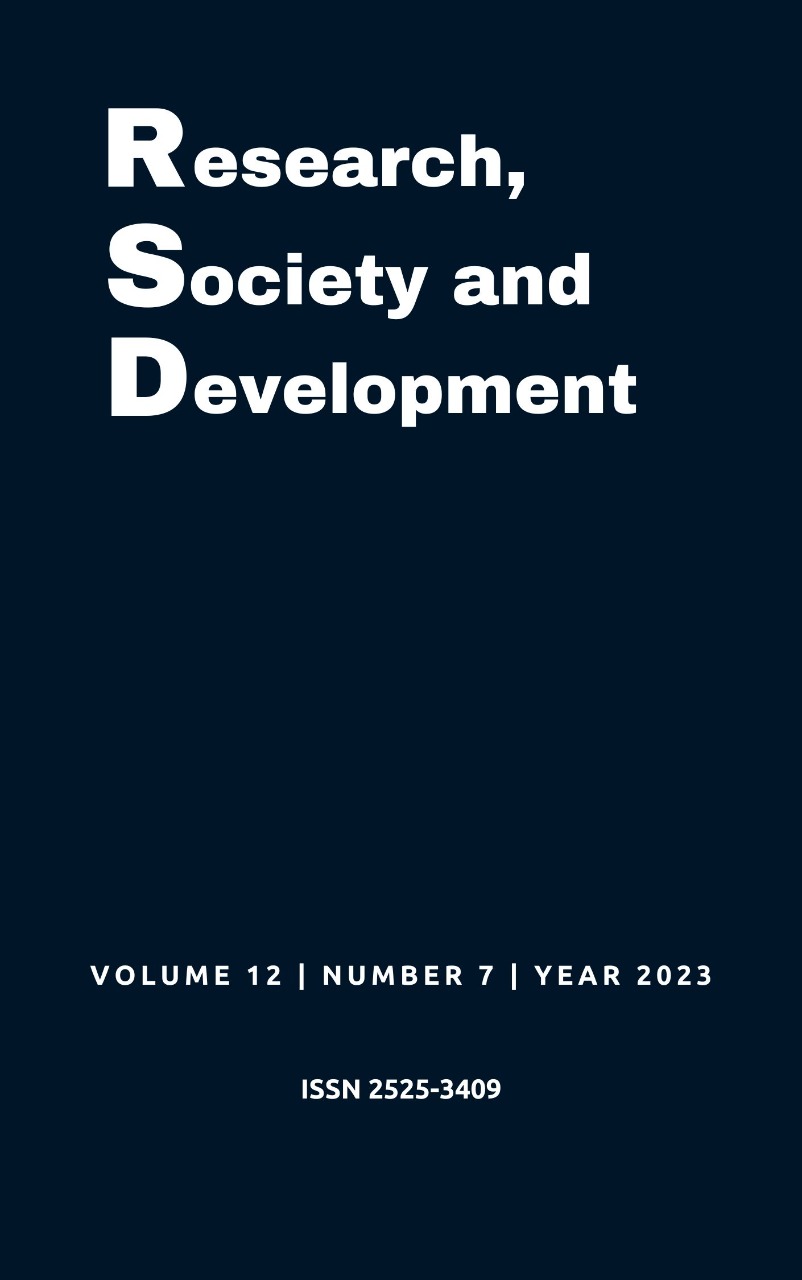Benefits of implementing a distance learning training system for maintenance mechanics
DOI:
https://doi.org/10.33448/rsd-v12i7.42458Keywords:
Mechanical maintenance; Trainings; Distance learning.Abstract
With the growing demand for mechanical services across the world, the importance of proper education and training for mechanics has become increasingly evident. However, many companies in the field still face difficulties in hiring qualified professionals and are not always able to provide quality training due to lack of time and resources. Through a case study this work aims to highlight the benefits of using an EAD platform, fed with videos and images and documents of maintenance performed on mechanical equipment in order to improve the quality of learning of the company's newly hired workforce, enhancing the medium and long term production results. The study presents the implementation of a platform to qualify the former employee. With this, it is noted that this method is an efficient way to enhance the training of mechanics, since they would have access at a distance, to a database with important information about the work that would be carried out by them later, allowing the professional to know the obstacles in maintenance, reducing the rate of errors in the process, aiming at saving time and increasing production..
References
Bezerra, N. P. X., Veloso, A. P., & Ribeiro, E. (2021). Ressignificando a prática docente: experiências em tempos de pandemia. Práticas Educativas, Memórias e Oralidades, 3(2), 323917-323917.
Assis, M. C. (2018). Metodologia do trabalho científico. Editora Universitária/UFPB.
Barbosa, I. S. M. (2017). Implantação do Indicador de Eficiência Global de Equipamentos. OEE em uma mineradora de pequeno porte. Trabalho de Conclusão de Curso. Instituto Federal de Minas Gerais, Congonhas, BR.
Cabrita, M. R. (2002). Gestão da manutenção industrial: um estudo de caso. Universidade de Coimbra.
Cattini, O. (1992) Derrubando os mitos da manutenção. STS Publicações e Serviços Ltda. 123 p.
Chiu, H-N. & Huang, B.S. (1996) The economic design of x control charts under a preventive maintenance policy. International Journal of Quality & Reliability Management, 13 (1): 61-71.
Freitas, T. C. D., & Lacerda, J. D. S. (2021). A “Pedagogia da Autonomia” de Freire e a “Autocomunicação de Massa” de Castells no fortalecimento do protagonismo estudantil na educação híbrida em tempos de pandemia.Intercom: Revista Brasileira de Ciências da Comunicação, 44, 145-158
Kardec, A. & Nascif, J. (2009) Manutenção: função estratégica. (3a ed.) Qualitymark. 384 p.
Kardec, A. & Nascif, J.A. (2001) Manutenção – função estratégica. (2a ed.), Qualitymark Editora Ltda.
Kardec, A., & Nascif, J. C. (2001). A qualidade na visão dos mestres da administração. Atlas.
Kardec, A., & Nascif, J. (2009) Manutenção função estratégica. (3a ed.) Qualitymark.
Levitt, J. (2009) "Handbook of Maintenance Management." McGraw-Hill Education.
Mayer, R. E. (2014) The Cambridge handbook of multimedia learning. Cambridge University Press.
Mesquita Filho, J. de. (2010) TPM: Total Productive Management. Universidade Estadual Paulista.
Mirshawka, V., & Olmedo, N. L. (1993) Manutenção – Combate aos custos da não eficácia – A vez do Brasil. São Paulo: Editora Makron Books do Brasil Ltda., 1993.
Murty, A. S. R. & Naikan, V. N. A. (1995) Availability and maintenance cost optimization of a production plant. International Journal of Quality & Reliability Management, Cambridge, 12 (2): 28-35.
Nakajima, S. (1988). Introdução ao TPM – Total Productive Maintenance. IMC Internacional Sistemas Educativos.
Preece, J., Nonnecke, B., & Andrews, D. (2004). "The top five reasons for lurking: Improving community experiences for everyone." Computers in Human Behavior, 20(2), 201-223.
Silva, D. M. da, Andrade, I. C., Alves, J. L. S., Lourenço, R. F. B. & Vasconcelos, G. R. (2020). A manutenção dos componentes como fator crítico no processamento da soja e seus desdobramentos. Pesquisa, Sociedade e Desenvolvimento. https://doi.org/10.33448/rsd-v9i7.4023
Yilmaz, R. (2018). The Effectiveness of E-learning: An Empirical Study on Turkish University Students. Universal Journal of Educational Research, 6(4), 789-796.
Downloads
Published
How to Cite
Issue
Section
License
Copyright (c) 2023 Lucas do Couto Silva; Eric Valero Carvalho da Silva

This work is licensed under a Creative Commons Attribution 4.0 International License.
Authors who publish with this journal agree to the following terms:
1) Authors retain copyright and grant the journal right of first publication with the work simultaneously licensed under a Creative Commons Attribution License that allows others to share the work with an acknowledgement of the work's authorship and initial publication in this journal.
2) Authors are able to enter into separate, additional contractual arrangements for the non-exclusive distribution of the journal's published version of the work (e.g., post it to an institutional repository or publish it in a book), with an acknowledgement of its initial publication in this journal.
3) Authors are permitted and encouraged to post their work online (e.g., in institutional repositories or on their website) prior to and during the submission process, as it can lead to productive exchanges, as well as earlier and greater citation of published work.

